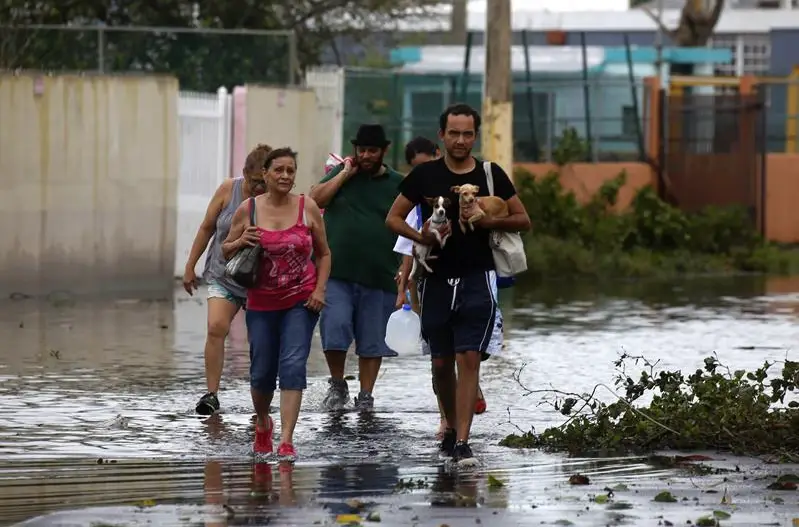The Greater Caribbean stands at a historic crossroads. The multiple crises it faces—from unsustainable debt and the collapse of mass tourism to the impacts of climate change and social exclusion—demand a profound rethinking of its economic model. This diverse and strategic region, encompassing not only the Caribbean islands but also mainland countries with coastlines on the Caribbean Sea such as Mexico, Colombia, and the Central American nations, now has the opportunity to build a new development paradigm centered on resilience, inclusion, and innovation.
But this shift will not happen automatically nor without tensions: it requires political will, strategic vision, and a transformative approach capable of breaking the dependence on external markets and extractive structures. The Caribbean can no longer rely on an economy based on tourism monocultures, volatile free-trade zones, and remittances vulnerable to geopolitical factors. It is time to lead a global economic justice agenda, anchored in regional integration that prioritizes its people.
A resilient Caribbean in the face of crises
The impacts of climate change are not hypothetical futures in the Greater Caribbean—they are everyday realities. From more intense hurricanes to rising sea levels, ecological vulnerability is closely linked to economic fragility. Therefore, speaking of resilience is not merely an environmental matter, but a deeply structural one.
The region must move toward productive diversification that transcends the extractive logic. This means investing in locally rooted industries, creative economies, marine bioeconomy, and new forms of sustainable production. It is essential to integrate the informal sector into national strategies—not as a burden, but as a manifestation of Caribbean communities’ adaptive capacity and creativity. At the same time, equitable access to financing, quality public infrastructure, and regional logistics networks are needed to strengthen intra-Caribbean trade, which remains marginal compared to trade with external powers.
In this context, development can no longer be measured solely by GDP growth. We need indicators that capture the capacity of Caribbean economies to empower their people, redistribute wealth fairly, and anticipate future challenges sustainably.
Innovation from the South: A digital and blue economy
Digitalization represents an unprecedented opportunity for the Greater Caribbean. With a young population and high-level universities, the region can train a new generation of technicians, scientists, planners, and entrepreneurs with a regional focus and digital skills. Investing in artificial intelligence, connectivity, and digital sovereignty is not a luxury—it is a strategic necessity for closing structural gaps and creating quality jobs.
On the other hand, the Caribbean can lead an ecological transition from the sea. The concept of a sustainable blue economy offers a path to responsibly use marine resources, promoting biocommerce, artisanal fishing, reef restoration, and the development of marine biotechnology. But to achieve this, it is essential to break away from the current mass tourism model, which depletes ecosystems and undermines labor. In its place, community-based, regenerative, and locally informed tourism must emerge.
Regional strategies must focus on innovative projects that strengthen the blue economy, promote inclusive digital platforms, and foster South-South alliances with other developing countries and blocs.
Economic justice through regional integration
The Greater Caribbean is far more than a group of islands and coastlines bathed by the same sea. It is a region marked by a shared history of colonization, slavery, resistance, and migration that has shaped common identities and unique cultural fabrics. This shared memory is also a source of political power.
For decades, the Caribbean has shown it can exert influence in multilateral settings, where the principle of “one country, one vote” allows it to punch above its economic weight. This collective diplomacy must be strengthened and translated into greater negotiating power with global actors, particularly on issues like access to climate financing, remittance regulation, and sovereign logistics chains.
Likewise, regional economic integration must prioritize intra-Caribbean trade, currently hampered by customs barriers, fragmented infrastructure, and high logistical costs. A common strategy is needed to consolidate regional value chains, foster multinational public enterprises, and promote a compensatory trade model based on the needs of the people, not just transnational capital.
Education, mobility, and remittances: Three key challenges
Transforming the Greater Caribbean’s economic model also depends on addressing three urgent issues: education, migration, and remittances. An educational reform is crucial—one oriented toward human development, science, and integration. Universities must become centers for regional thinking and technical training for structural change.
Second, migration cannot continue to be managed through criminalization or emergency diplomacy. The Caribbean needs human mobility policies that recognize the contributions of its diasporas and protect the rights of migrants.
Lastly, remittances—which account for up to 20% of GDP in some Caribbean countries—must be safeguarded against potential sanctions, taxes, or external restrictions. Proprietary digital platforms, regional banking alliances, and sovereign regulation are essential steps to ensure these flows remain a safety net for millions of families.
A shared sea, a common future
The Greater Caribbean is called to play a leading role in reshaping the global order. Its strategic location, cultural wealth, and ecological diversity give it a unique comparative advantage. But what can truly turn that advantage into real transformation is the capacity to build a common agenda—from the bottom up and from the Global South.
The region is a bridge between oceans and cultures, a reservoir of biodiversity, and a seedbed of globally impactful thought. To fulfill that role, it needs political will, strategic vision, and robust regional structures.
In this regard, the recent Declaration of Montería, signed on May 30 by the countries of the Greater Caribbean during the Summit of the Association of Caribbean States, marks an important step. In its Article II on Cooperation, the declaration reaffirms that cooperation is an essential instrument to achieve the region’s sustainable development. This renewed commitment must be translated into concrete actions: fair climate financing, technology transfer, productive integration, and public policies centered on equity.
In this ocean of possibilities, the time to act is now!
*Machine translation proofread by Janaína da Silva.













